Description
Naproxen Sodium, a non-steroidal anti-inflammatory drug (NSAID), exerts its mechanism of action by inhibiting the cyclooxygenase (COX) enzymes, specifically COX-1 and COX-2. These enzymes play a crucial role in the synthesis of prostaglandins, which are involved in mediating pain, inflammation, and fever. By blocking the action of COX enzymes, naproxen sodium reduces the production of prostaglandins, thereby providing pain relief and reducing inflammation. It achieves this by competitively and reversibly binding to the active site of the COX enzymes, preventing the conversion of arachidonic acid into prostaglandin H2, the common precursor for various prostaglandins and thromboxanes. This inhibition of prostaglandin synthesis underlies naproxen’s therapeutic effects, making it effective in managing pain, inflammation, and fever associated with various conditions.
Ingredients
Naproxen SodiumDrug Class
Nonsteroidal anti-inflammatory drug (NSAID)
Dosage Form
Tablet
Uses
The following are the uses of Naproxen Sodium 550mg Tablet:
- Used for relieving acute pain, such as headaches, toothaches, and menstrual cramps.
- Used for reducing inflammation and managing acute gout attacks.
- Used for bringing down fever and alleviating symptoms of cold and flu.
- Used for treating minor injuries like sprains and strains to reduce swelling.
- Used for providing temporary relief from arthritis pain, including osteoarthritis and rheumatoid arthritis.
- Used for easing discomfort after surgical procedures or dental work.
- Used for managing chronic pain conditions under medical supervision.
Dosage
Tailoring Treatment for Optimal Health, Prescribed Medication Dosage is:
- For arthritis, naproxen is usually taken twice daily (noon and midnight).
- For ankylosing spondylitis, a recommended dose is 550 mg.
- For bursitis or tendonitis, naproxen is typically taken at a rate of 550 mg twice a day.
- For menstrual cramps, naproxen is typically taken initially at a rate of 550 mg, and if needed, 550 mg every 6-8 hours thereafter.
In case of Overdose
In the case of an overdose of Naproxen Sodium 550mg Tablets, symptoms may include dizziness, ringing in the ears, headache, gastrointestinal bleeding, and potential kidney damage. The severity of these symptoms can vary depending on the amount ingested. It is important to seek medical advice promptly if an overdose is suspected. Treatment may involve monitoring vital signs, providing supportive care, and in severe cases, hospitalization for more intensive management. Timely intervention is key to preventing potential complications.
Missed Dose
In the case of a missed dose of Naproxen Sodium 550mg Tablet, it is important to take the missed dose as soon as you remember. However, if it is almost time for your next scheduled dose, skip the missed dose and continue with your regular dosing schedule. Do not double the dose to make up for a missed one, as this may increase the risk of side effects. If you miss multiple doses, consult your healthcare provider for advice on how to get back on track with your medication regimen.
How To Use
To take Naproxen Sodium 550mg Tablet, swallow the tablet whole with a full glass of water, preferably with food or after a meal, following the dosage instructions provided by your healthcare professional.
When Not to Use
Following are the conditions/situations when Naproxen Sodium 550mg Tablet should not be taken:
- Avoid if you have a known allergy or sensitivity to naproxen, aspirin, or other NSAIDs (Non-Steroidal Anti-Inflammatory Drugs).
- Do not use if you have a history of asthma attacks or severe allergic reactions triggered by aspirin or other NSAIDs.
- Contraindicated in individuals with active or recent gastrointestinal bleeding or perforation.
- Should not be taken by individuals with a history of heart attack, stroke, or severe heart disease.
- Avoid if you have uncontrolled high blood pressure.
- Not recommended for patients with severe kidney or liver impairment.
- Do not use if you are in the third trimester of pregnancy.
- Contraindicated in individuals with a history of bleeding disorders or those taking blood-thinning medications.
- Should not be used before or after certain types of heart surgery (e.g., coronary artery bypass graft surgery).
- Avoid if you have a history of peptic ulcers or gastrointestinal bleeding.
Side Effects
The side effects of Naproxen Sodium 550mg Tablet may include:
- Stomach pain or upset
- Nausea and vomiting
- Diarrhea
- Dizziness or vertigo
- Headache
- Drowsiness or fatigue
- Skin rash or itching
- High blood pressure
Precautions & Warnings
Following are the precautions and warnings for Naproxen Sodium 550mg Tablet:
- Avoid using this medication if you have a known allergy to Naproxen or other NSAIDs (Non-Steroidal Anti-Inflammatory Drugs).
- Consult your doctor if you have a history of gastrointestinal bleeding, ulcers, or other stomach-related disorders before taking this medicine.
- Use with caution if you have kidney or liver problems, as it may require dosage adjustments.
- Avoid excessive alcohol consumption while taking this medication, as it can increase the risk of gastrointestinal bleeding.
- Do not take this medication if you are in the last trimester of pregnancy, as it may harm the fetus.
- Breastfeeding women should consult their healthcare provider, as Naproxen may pass into breast milk.
- This medication may increase blood pressure, so monitor your blood pressure regularly, especially if you have hypertension.
- If you are elderly, you may be more susceptible to side effects, so use with caution and under medical supervision.
Drug Interactions
Following are the drug interactions for Naproxen Sodium 550mg Tablet:
- Concurrent use with other NSAIDs (e.g., ibuprofen, aspirin) may increase the risk of gastrointestinal bleeding and renal toxicity.
- Naproxen can decrease the effectiveness of angiotensin-converting enzyme (ACE) inhibitors and angiotensin receptor blockers (ARBs), potentially reducing their blood pressure-lowering effects.
- Lithium levels may be increased when used with Naproxen, requiring close monitoring of lithium levels.
- Naproxen can reduce the diuretic and antihypertensive effects of loop diuretics and thiazide diuretics.
- Combining Naproxen with anticoagulants (e.g., warfarin) may increase the risk of bleeding.
- Methotrexate levels may be elevated, increasing the risk of methotrexate toxicity.
- Naproxen may compete with penicillin for renal tubular secretion, potentially increasing serum levels of penicillin.
- Caution is advised when using Naproxen with selective serotonin reuptake inhibitors (SSRIs) or serotonin-norepinephrine reuptake inhibitors (SNRIs), as this may increase the risk of gastrointestinal bleeding.
Food Interactions
Following are the food interactions for Naproxen Sodium 550mg Tablet:
- Avoid excessive salt intake as this medication may retain sodium, leading to increased blood pressure.
- Limit alcohol consumption as it can increase the risk of gastrointestinal bleeding and liver toxicity.
- Avoid grapefruit and grapefruit juice as they can interfere with the metabolism of Naproxen, potentially increasing its levels in the body.
- Caffeine-containing beverages like coffee and tea should be consumed in moderation as they may increase the risk of stomach irritation.
- Foods rich in vitamin K, such as leafy green vegetables, can interact with Naproxen’s blood-thinning effects and should be consumed consistently.
- Avoid high-fat meals as they may delay the absorption of Naproxen, affecting its effectiveness.
- Consume a balanced diet, including fiber-rich foods, to prevent potential gastrointestinal side effects associated with NSAIDs.
Storage/Disposal
Naproxen Sodium 550mg Tablets should be stored in a secure and dry location, preferably at room temperature, ensuring protection from direct sunlight, moisture, and heat. It is crucial to keep the tablets in their original container, tightly sealed, to maintain their integrity and prevent contamination. When disposing of unused or expired medication, it is important to avoid flushing or pouring them down the drain. Instead, consult a pharmacist or healthcare professional for guidance on safe disposal methods. Additionally, ensure that the medication is kept away from children to prevent accidental consumption, as it should be treated with the same caution as any other prescription drug. Always exercise responsibility when handling and storing Naproxen Sodium tablets to maintain their effectiveness and prevent any potential harm.
Quick Tips, if any
Following are the quick tips for Naproxen Sodium 550mg Tablet:
- Consult a healthcare professional before use, especially if you have a medical condition or are taking other medications.
- Take the tablet with a full glass of water to aid absorption.
- Avoid alcohol consumption while taking this medication as it may increase the risk of stomach bleeding.
- Do not crush or chew the tablet; swallow it whole for optimal effectiveness.
- Inform your doctor if you have a history of gastrointestinal issues before starting this medication.
- Store the medication at room temperature, away from moisture and heat.
- Regularly monitor your health and report any unusual symptoms to your healthcare provider.
- Ensure you complete the full prescribed course, even if you start feeling better.
Laboratory Screening
Naproxen sodium is a common over-the-counter pain reliever (NSAID) used to reduce pain and inflammation for patients with acute or chronic conditions. Despite not requiring a laboratory test to purchase Naproxen Sodium, it is essential to remember that this medication requires consultation with a licensed medical provider. Before prescribing Naproxen Sodium, a physician will perform a full examination and assessment of the patient’s medical history to ensure safety and effectiveness. This process may involve specific laboratory tests or diagnostic imaging to identify underlying conditions or rule out potential contraindications. These tests may include liver function and complete blood cell tests to monitor any signs of bleeding since Naproxen can cause bleeding problems in some patients. Additionally, a basic kidney function test may be advised to ensure your kidneys are functioning properly since Naproxen is excreted through the kidneys. These tests are not specific to Naproxen Sodium but are standard procedures to ensure that a patient is healthy enough to receive an NSAID medication and to monitor for any potential adverse effects while taking the medication. Given the importance of individual patient assessment, it is crucial to consult a qualified medical professional before using Naproxen Sodium or any over-the-counter medication. Consult a doctor for specific recommendations relating to your unique medical history and condition


Get Your Healthcare Delivered Nationwide!
No matter where you reside in Pakistan, medlife.pk brings your healthcare essentials straight to your doorstep! We partner with trusted shipping companies like TCS, M&P, LEOPARD Courier, Trax, and Call Courier for nationwide delivery.
For ultimate convenience, enjoy Cash on Delivery (COD) with a flat rate of Rs.299 across Pakistan. Prefer to pay upfront? Orders over Rs.3,000 receive free shipping when you pay with Bank Transfer, JazzCash, Easypaisa, or Credit/Debit Card. And the perks don't stop there! Orders exceeding Rs.5,000 with advance payment not only get free shipping, but also earn you a discount coupon for your next medlife.pk purchase.
Rest assured, our team meticulously packs and ships your order for safe arrival, ensuring you receive the genuine products you deserve. So, browse our selection, choose your payment method, and get ready to experience the medlife.pk difference! Happy shopping!


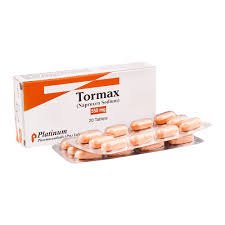

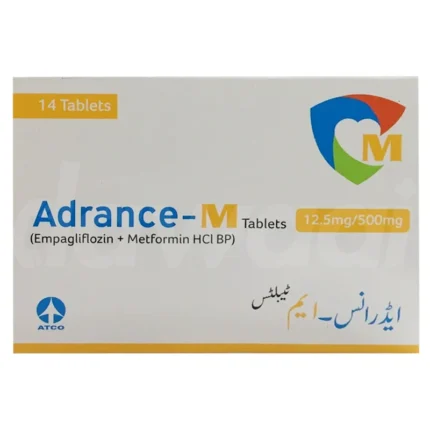


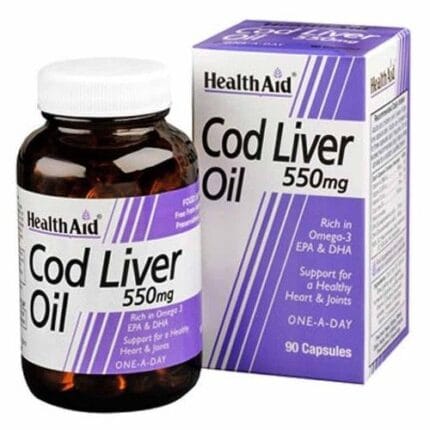
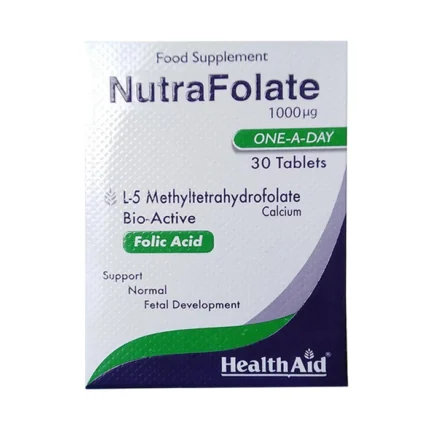


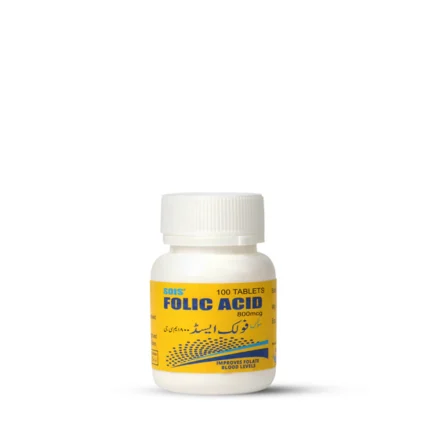









Reviews
There are no reviews yet.